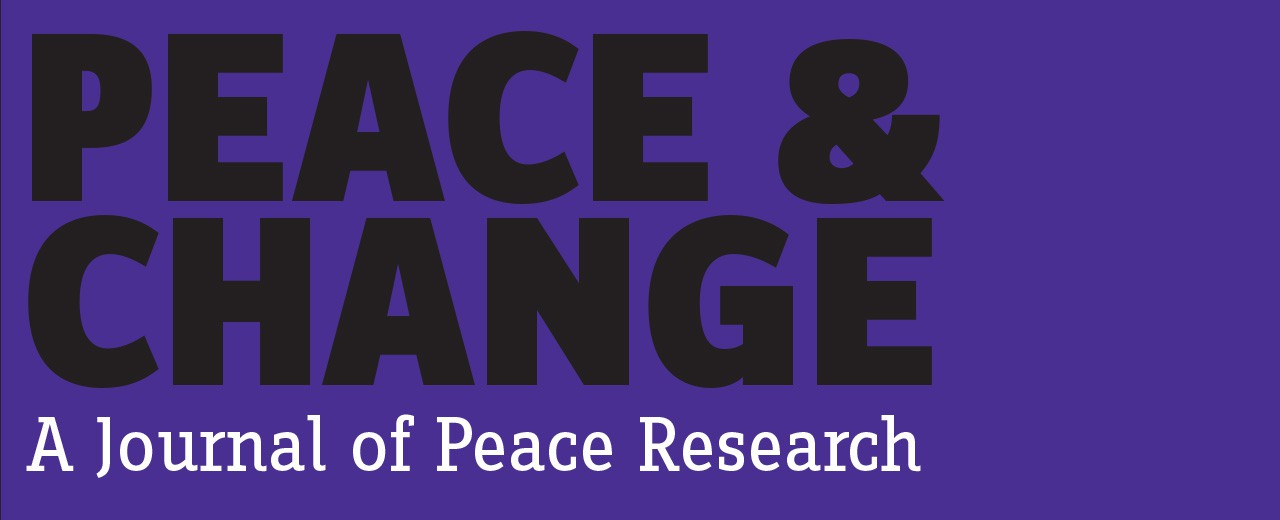by Sandra Simić
Part II – Peace Through Development
Every initiative towards the creation of international peace is valuable and merits respect. However, we ought to make bolder steps in the search for solutions, as the fact that wars are still present in the 21st century means that the international community is immature.
International peace can be achieved by a multidisciplinary approach, through advancement in many areas and coordination between them. Public international law, interpreted correctly and changed where necessary, has the potential to secure peaceful relations between nations as well as their development.
In the internet era, when information is easily accessible to everyone, the legitimate feeling of injustice rises in people living in poverty. The desire for development is natural in human beings. Poverty is also one of the factors leading to conflicts. Differences in the level of development and living standards between nations, causing deep poverty and the lack of opportunities, call for smart investment initiatives.
We should intertwine the economic interests of nations in order to make them the threads of peace. No nation would wish to start a war if this would mean attacking their own economic interests. If the European Union has finally achieved peace, why wouldn’t that be possible for the rest of the world?
Every human being, regardless of origin, gender, nationality, skin color, or any other factor, should be given the same right to development. The United Nations Charter promotes economic and social progress and development in its article 55.
Economic development is stipulated in article 1.1. of the UN International Covenant on Economic, Social and Cultural Rights, 1966 (ICESCR), while its article 2.1. emphasizes that with a view to progressively achieving these rights various steps may be followed, including the international cooperation. ICESCR is a legally binding international agreement.
There are other, legally non-binding international instruments which define this right. Its articulation in the Declaration on the right to development adopted by UN General Assembly Resolution 41/128 on 4 December 1986 (articles 1 and 2) has helped support and develop the special and preferential treatment for developing countries and other principles. (3) Also, it influenced the adoption of the Millennium Declaration in 2000, which outlines the Millennium Development Goals of the UN (MDG). The MDG 8 in particular, is calling for a global partnership for development. (5) However, the impact of the MDG has been limited due to its non-binding legal character. The international community should seek to enhance the role of public international law in creating binding legal instruments for global development.
The author is pro meritocracy at the level playing field. There is neither honor nor success in winning at the global market if the field is not level. Obviously, the differences in development between various nations make the efforts of the underdeveloped countries non-sufficient for progress, as their products may not be competitive at the global market. The playing field is not truly level (6) because of the inequality between the players.
The UNHCR, the UN Refugee Agency monitors migrations due to various causes, most notably wars and poverty. It seems that the international community is overwhelmed by the numbers of people putting everything at risk in order to cross borders illegally in search of a better life. Migrations affect many policies in host countries, such as employment, education, health, and social services, culture, security, education, finances, and others. Therefore, this calls for a concerted effort by the international community in finding solutions for development in the home countries of migrants. Building refugee camps at the borders is a temporary solution which is not solving the problem. Human dignity demands equal opportunities for development. Various instruments for international help in terms of donations, food, shelter, medical supplies, assistance and other ways of reaching out to people in need are not a solution. If you are looking at people in need with pity, be sure that you lost their respect. You made them feel inferior. Instead, the honor lies in reflecting about justice, in expanding our intellectual horizons in search for ways of accepting every person as an evolving being, able to do great things.
Capitalism and free democracy create a positive context for development. When individual liberties are protected, people are able to express their creativity, produce and build their societies. In the quest for economic growth, the businesses are continually seeking new products and new markets. At the other end of the spectrum, the underdeveloped countries are continually looking for investments. We should be focused on how to connect the two sides of the spectrum in a way that would be profitable to both. In the globalized world of today, we should above all seek the innovative solutions within the public international law.
The author advocates the creation of an international legal framework which would give capitalism a more human face.(7) The global investment treaty may be concluded under the auspices of the United Nations. Its wide mandate and equality of votes will ensure the appropriate context for creating a fairer international investment regime through the fine balancing between social justice and capitalism. Such an agreement would create a framework where consensus is possible, while the bilateral investment treaties may continue to exist alongside. Investment is the key for economic development, but it must not be taken out of the context and become a value in itself. Investment should be seen as a tool for the greater good and sustainable international growth. This would positively influence the overall global stability and the creation of peace worldwide.
It is important to reflect upon the voting system within a forum which is to develop, draft and adopt an international agreement, as perspectives may differ. For instance, the Bretton Woods institutions (IMF, World Bank) have the voting system which gives the most developed countries the majority (weighted voting), while there is equality of votes within the UN. If the aim is to achieve international justice, it should be developed within the appropriate context. Due to equality of votes of all states and its wide mandate (covering economic and other topics like human rights, environment, labor law etc.), it is the author’s opinion that the penholder should be the United Nations. In this way, a balanced text would be developed, giving capitalism a more human face.
The economy is not the only way of creating peace through development. Advancements in technology offer new opportunities for creating peace as well, for instance, through the pacifist use of satellites. There is a practical example which has been successful in monitoring Sudan and South Sudan through the imagery captured by DigitalGlobe satellites, called the Satellite Sentinel Project, which was conceived by George Clooney and John Prendergast. Through the use of satellites, human rights abuses may be prevented and also better documented at war trials afterward.
References
- United Nations Charter.
- International Covenant on Economic, Social and Cultural Rights, 16 December1966.
- Subedi, S. P., “International Economic Law – Section A: Evolution and Principles of International Economic Law”, Revised version, University of London, Queen Mary&University College London, University of London Press, 2007, Chapter 3, p.27.
- United Nations Millennium Development Goals, 2000.
- Subedi, S.P., “International Economic Law – Section B: International monetary and development law and policy”, Revised version, University of London, Queen Mary&University College London, University of London Press, 2007, p. 23-24.
- Subedi, S.P., “The notion of free trade and the first ten years of the World Trade Organisation: how level is the “level playing field?” The Netherlands international law review LIII:273-296, 2006.
- Simić, Sandra, “Our future is in the eye of the beholder – an initiative for a global investment treaty”, Croatian Academy of Legal Sciences Yearbook, Vol. VII, Number 1/2016, 2016.
Sandra Simić, mag.iur., LLM, is a lawyer specialized in Public International Law and European Law (University of London, Queen Mary&University College London), with extensive professional experience in private (Attorney at Law) and public sector. This essay represents her personal opinion. She may be reached at: sandra_law@europe.com; SandraSimic©.

